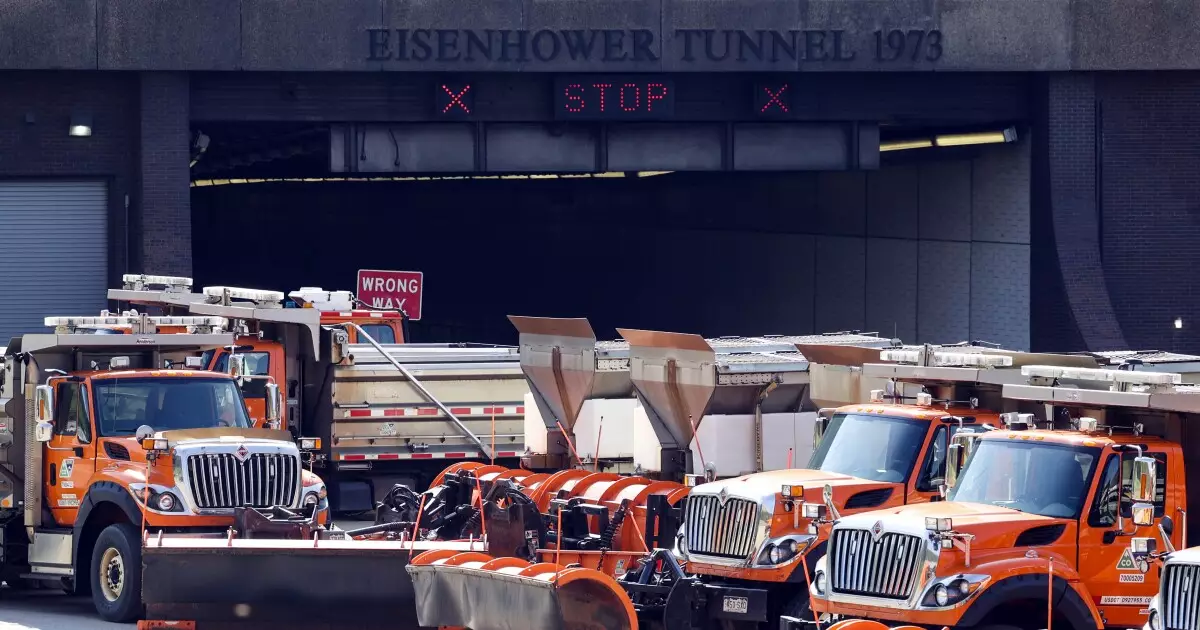In a bold financial move, Colorado’s Statewide Bridge and Tunnel Enterprise (BTE) plans to issue $212.45 million in revenue bonds, as it navigates a precarious landscape marked by litigation and fiscal uncertainty. These bonds, backed by upgraded underlying ratings since their last issuance, are not just a simple fundraising strategy; they symbolize a critical effort to address the deteriorating infrastructure that plagues the state. However, the looming shadow of Colorado’s Taxpayer’s Bill of Rights (TABOR) brings a unique set of challenges, raising questions about governance, funding, and the implications for everyday Coloradans.
The BTE, established under the FASTER Act of 2009, has been acquiring additional responsibilities, such as tunnel management, through legislative updates. Yet, its struggle against the restrictive nature of TABOR, which limits state revenue and spending, is a contentious issue. As the bond sale date approaches, the crux of the litigation regarding its revenue sources becomes apparent: additional revenues, meant to stabilize the BTE’s financial footing, are currently tied up in legal battles.
The Financial Framework of Infrastructure Funding
Originally, the BTE’s revenue model relied heavily on a bridge safety surcharge—ranging from $13 to $32, depending on vehicle weight—and an impact fee on motor fuels. However, these revenue streams are now under fire, susceptible to the complexities of TABOR’s stringent regulations. This raises a critical question: Can Colorado truly maintain and improve its infrastructure in a financial climate where additional fees are fought in court?
The BTE’s journey through early bond sales—such as the inaugural $300 million taxable Build America Bonds—taught a hard lesson in vulnerability. Each financing endeavor is a gamble, subject to the whims of public perception and legal interpretations of what constitutes fair taxation. The litigation claiming that the state is circumventing TABOR by labeling fees as ‘surcharges’ rather than taxes speaks to a growing concern about transparency in governance. Are these fees truly necessary for the state’s welfare, or merely a creative workaround?
Impacts of TABOR on Infrastructure and Governance
The TABOR amendment, enacted in 1992, has left a significant imprint on Colorado’s fiscal landscape. As one of the most restrictive tax expenditure limitations in the nation, it effectively hampers the state’s ability to fund essential services and infrastructure projects. Proponents of TABOR argue that it empowers taxpayers, fostering a framework for responsible government spending. However, the opposite is evident in the steady deterioration of infrastructure, where the state government repeatedly finds its hands tied.
Lawmakers, such as Rep. Sean Camacho, have voiced frustration over TABOR’s effects, labeling the amendment a hindrance rather than a safeguard. The current estimated budget shortfall of over $1 billion for fiscal 2026 showcases the damning reality of a budget constrained by outdated financial rules. With ballot measures like the initiated statute requiring voter approval for enterprise fees exceeding $100 million, the continual growth of bureaucratic red tape remains a significant obstacle for timely infrastructure improvements.
The argument concerning the enterprise loophole is not merely an academic discussion; it’s a diversion that carries real-world implications. The ongoing legal challenges reflect broader anxieties about government accountability, just at the moment when Coloradans desperately need reliable public services.
The Future of Colorado’s Infrastructure Financing
Facing a backdrop of shrinking budgets and burgeoning lawsuits, the potential bond sale becomes more than just numbers; it is a litmus test for Colorado’s governance. Fitch and Moody’s ratings agencies recently upgraded their outlook on BTE’s bond offerings, suggesting a hint of optimism regarding future revenues, but investors remain wary. The bond’s structure, divided between serial maturities and long-term issues, presents an interesting juxtaposition of immediate and future financial obligations.
As the bond sale looms, Colorado’s government must confront the reality that almost 76% of enterprise fee revenue is now technically classified as ‘not subject’ to TABOR. What does this mean for voters who feel sidelined by decisions they never approved? As debates rage at the state capitol, the question looms larger: Is it in the public’s best interest to loosen TABOR’s grip to ensure the dignity of essential services?
The BTE’s struggle encapsulates a broader narrative of funding infrastructure amidst a cavalcade of legislative restrictions. It highlights the difficult balancing act governments must perform in securing necessary resources while remaining accountable to their constituents. The success or failure of this bond sale—and the broader implications for infrastructure in Colorado—could well set a precedent for other states wrestling with similar challenges.


Leave a Reply